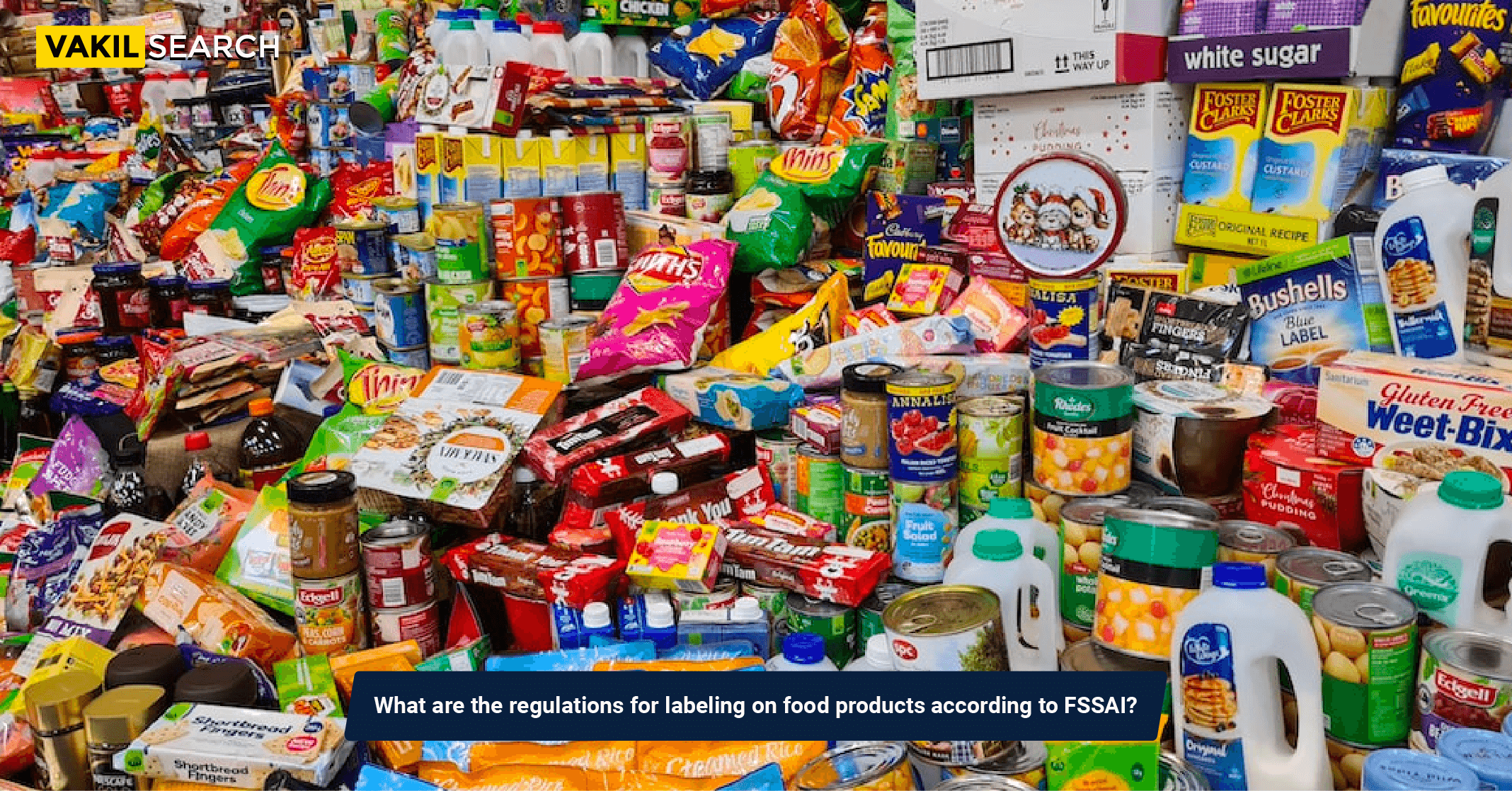Understanding food labelling regulations according to FSSAI is essential for businesses in India. These guidelines govern how food products should be labelled, ensuring transparency and safety for consumers. Explore the key regulations to comply with for proper food product labelling.
Introduction
Government bodies worldwide enforce strict regulations for food labelling and packaging. In India, the FSSAI (Food Safety and Standards Authority of India) is the authority responsible for setting these labelling norms. When introducing a new food product or updating packaging, adherence to FSSAI guidelines is essential.
Amid numerous FSSAI labelling regulations, errors can occur. Non-compliance may result in fines, penalties, product recalls, or launch delays. Yet, understanding FSSAI labelling rules can help you avoid these issues and ensure product compliance.
What Are FSSAI Guidelines for Food Labelling Regulations?
The FSSAI regulations for food labelling encompass a comprehensive set of rules applicable to all food manufacturers and brands. These rules require labelling on every packaged food item, providing vital product and manufacturer information, including:
Product Name: Clearly display the food product’s name, following the prescribed font in FSSAI food labelling rules.
Ingredient List: List all ingredients used in making the final product transparently, leaving no ambiguity.
Nutritional Information: Include details on calories, trans fat, saturated fat, sodium, cholesterol, dietary fibre, carbohydrates, protein, sugar, iron, calcium, vitamin A, and vitamin C.
Vegetarian or Non-Vegetarian Declaration: Indicate if the product contains non-vegetarian ingredients with a red or green dot.
Food Additives Declaration: Disclose any additives used to enhance appearance, taste, or preservation.
Manufacturer’s Name and Address: Prominently display the manufacturer’s name, complete address, and production location.
Customer Care Details: Include contact information for customer support.
Quantity: Clearly mention the net weight or quantity of the food product.
Retail Sale Price: Indicate the maximum retail price.
FSSAI Logo and License Number: Display the FSSAI logo and online food license number prominently.
Batch/Code/Lot Number: Provide authentication of the manufacturer’s identity.
Manufacturing Date and Best Before/Use-By Date: Inform consumers about product expiration to ensure safe consumption.
User Instructions: Include usage instructions as per FSSAI labelling rules.
Country of Origin (For Imported Food): Specify the food’s nationality to reveal its origin.
FSSAI License Number: Display the FSSAI logo and license number with a contrasting background colour for visibility.
Why FSSAI Regulations Need to Be Followed?
Ensuring compliance with FSSAI regulations is not just a legal requirement; it is essential for several reasons:
Consumer Safety: FSSAI regulations are designed to protect consumers from unsafe and adulterated food products. Following these regulations helps prevent foodborne illnesses and ensures the safety of your customers.
Legal Obligation: Non-compliance with FSSAI regulations can result in hefty fines, product recalls, and even the closure of your cloud kitchen. It’s crucial to adhere to these regulations to avoid legal troubles.
Trust and Reputation: Complying with FSSAI standards builds trust and enhances your brand’s reputation. Consumers are more likely to trust and choose products with proper food labelling and safety.
Market Access: Many retailers and e-commerce platforms require FSSAI certification before they will stock or sell food products. Compliance opens up opportunities for wider market access.
The Process of Ensuring FSSAI Compliance -FSSAI Guidelines
Regular Audits: Conduct internal audits and assessments of your cloud kitchen to ensure ongoing compliance with FSSAI regulations.
Staff Training: Train your kitchen staff in food safety practices, handling, and hygiene to maintain compliance.
Documentation: Keep detailed records of your food production processes, supplier information, and safety measures.
Stay Informed: Stay updated on any changes or updates to FSSAI regulations to adapt your processes accordingly.
The Significance of FSSAI Compliance:
FSSAI compliance holds immense significance in the food industry for several compelling reasons:
Public Health: Protecting public health is a primary objective of FSSAI regulations. Compliance ensures that the food served to the public is safe and free from contaminants or harmful additives.
Quality Assurance: Compliance is a mark of quality assurance. It signifies that your cloud kitchen’s products meet defined quality standards, boosting consumer confidence.
Legal Requirements: Operating without FSSAI compliance can result in severe legal consequences, including fines and business closure. Compliance is a legal obligation.
Consumer Awareness: Modern consumers are increasingly conscious of the food they consume. They actively seek out products with proper labeling and certification, making FSSAI compliance a marketing advantage.
The Process of Ensuring FSSAI Compliance:
Robust Documentation: Maintain comprehensive records of your operations, including procurement, production, and quality control. Detailed documentation is crucial for audits and inspections.
Regular Training: Continuously train your staff on food safety practices and hygiene standards. Regular training ensures that your team remains updated on best practices.
Supplier Verification: Verify the compliance of your suppliers with FSSAI regulations. Ensure they provide you with safe and legally compliant ingredients.
Hygienic Practices: Implement strict hygiene practices in your cloud kitchen, covering areas from food storage and preparation to waste disposal.
Routine Audits: Conduct internal audits and inspections to identify and rectify potential compliance issues proactively.
Benefits of FSSAI Compliance – FSSAI Guidelines
Since we are talking about the FSSAI food regulations and labelling, here are a few benefits on FSSAI compliance:
Consumer Trust: FSSAI compliance instils trust in consumers, assuring them that your food is safe and of high quality.
Business Growth: Compliance opens doors to partnerships with retailers, e-commerce platforms, and other businesses, enabling your cloud kitchen to expand its reach.
Reduced Legal Risks: Compliance minimises legal risks and potential fines, safeguarding your business.
Competitive Edge: FSSAI compliance can set your cloud kitchen apart from competitors, attracting health-conscious consumers.
Positive Reputation: A reputation for FSSAI compliance enhances your brand’s image and credibility.
Conclusion:
In the world of cloud kitchens, adhering to FSSAI regulations is not just a necessity; it’s a fundamental responsibility. It ensures the safety of your consumers, maintains legal compliance, enhances your brand’s reputation, and opens doors to broader market opportunities. By following the prescribed guidelines and staying vigilant, you can run a successful and legally compliant cloud kitchen, offering safe and delectable cuisine to your customers while fostering trust and growth in your business.




